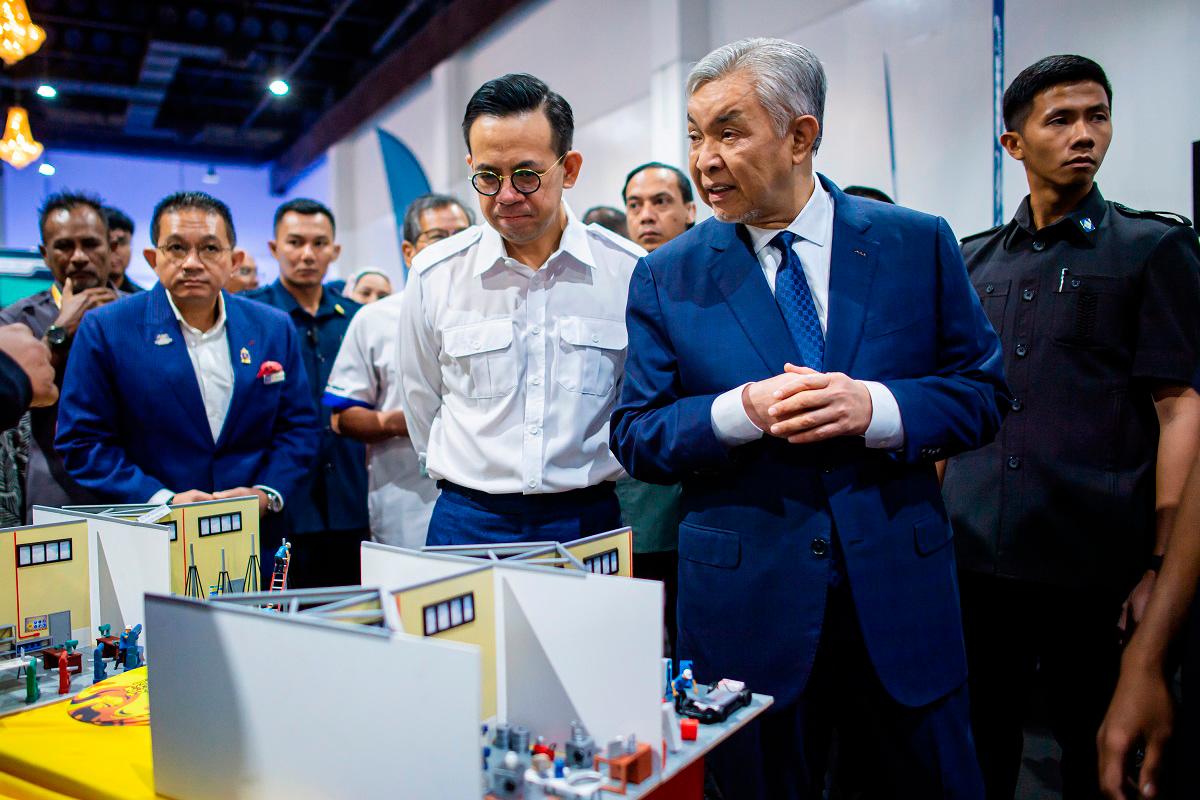KUALA LUMPUR: Deputy Prime Minister Datuk Seri Dr Ahmad Zahid Hamidi proposed the establishment of an Asean TVET Certification and Excellence Hub to standardise benchmarks, ensure mutual recognition and promote skilled worker mobility across the region.
“Our TVET journey does not stop at Malaysia’s borders. We have gone to the world to strengthen our agenda, ensuring our talent is globally competitive,” Ahmad Zahid said when officiating at the Asean TVET Conference 2025 at the World Trade Centre Kuala Lumpur.
He highlighted Malaysia’s recent global collaborations, including 5,125 industrial placements in China, partnerships with the Mohamed bin Zayed University of AI in Abu Dhabi and skills exchanges with Japan, Germany and Australia.
Ahmad Zahid added that the initiative should be complemented by cross-border apprenticeship programmes, enabling students from the Philippines to train in Malaysia, Indonesians in Vietnam, and Thai graduates in Singapore, turning Asean integration into a practical reality through the movement of skills and knowledge.
Ahmad Zahid also announced plans for a new Asean Green and Digital Skills Taskforce, which would unite member states “in concrete actions, measurable targets and steadfast mutual support to cultivate the talent our region needs”.
He reaffirmed that TVET remains central to Malaysia’s economic strategy, aiming to create 1.2 million high-value jobs in manufacturing and the digital economy within the next five years.
Human Resources Minister Steven Sim Chee Keong were also present at the conference.
In his keynote address, Sim said: “Firstly, Asean should be a platform to share our experiences in skills training.”
Sim noted that each member state has different stages of industrialisation, and sectoral strengths could complement one another, citing Malaysia’s more than half a century of high-tech manufacturing experience.
“Today we are 7% of global semiconductor trade and 13% of global semiconductor backend manufacturing,” he said, adding that Malaysia aims to become a world-class skills training centre to prepare its workforce for higher-value jobs.
Sim proposed moving towards a common Asean certification framework to enable transborder recognition of skills.
“If skills are the currency of IR 4.0 (Industrial Revolution 4.0), then we must work hard towards mutual recognition,” he said, suggesting that the Asean TVET Council be strengthened to take on a greater role.
He also pointed to Malaysia’s legislative amendments to recognise TVET qualifications beyond the current advanced diploma level, covering consultant and expert certifications.
He said these should meet stringent regional or global standards and allow free movement of expertise within Asean.
Sim underscored the need for investment, noting that Malaysia spends about RM10 billion annually on TVET and skills education.
“If this is an average across Asean, we are looking at about RM100 billion annual government outlays for TVET and skills training,” he said.
To illustrate Malaysia’s commitment to resource sharing, Sim cited the recent opening of National Training Week to Asean citizens for the first time. The programme drew 3.5 million participants and offered over 72,000 free training courses valued at RM400 million.
The two-day Asean TVET Conference 2025, jointly organised by the Human Resource Development Corporation and the Skills Development Fund Corporation Malaysia, is part of the Asean Year of Skills 2025.
This year’s theme, “Advancing Digital and Green Transformations through an Inclusive and Future-Ready TVET System,” brings together over 1,500 delegates from across Asean, including policymakers, industry leaders, education providers and international partners.









